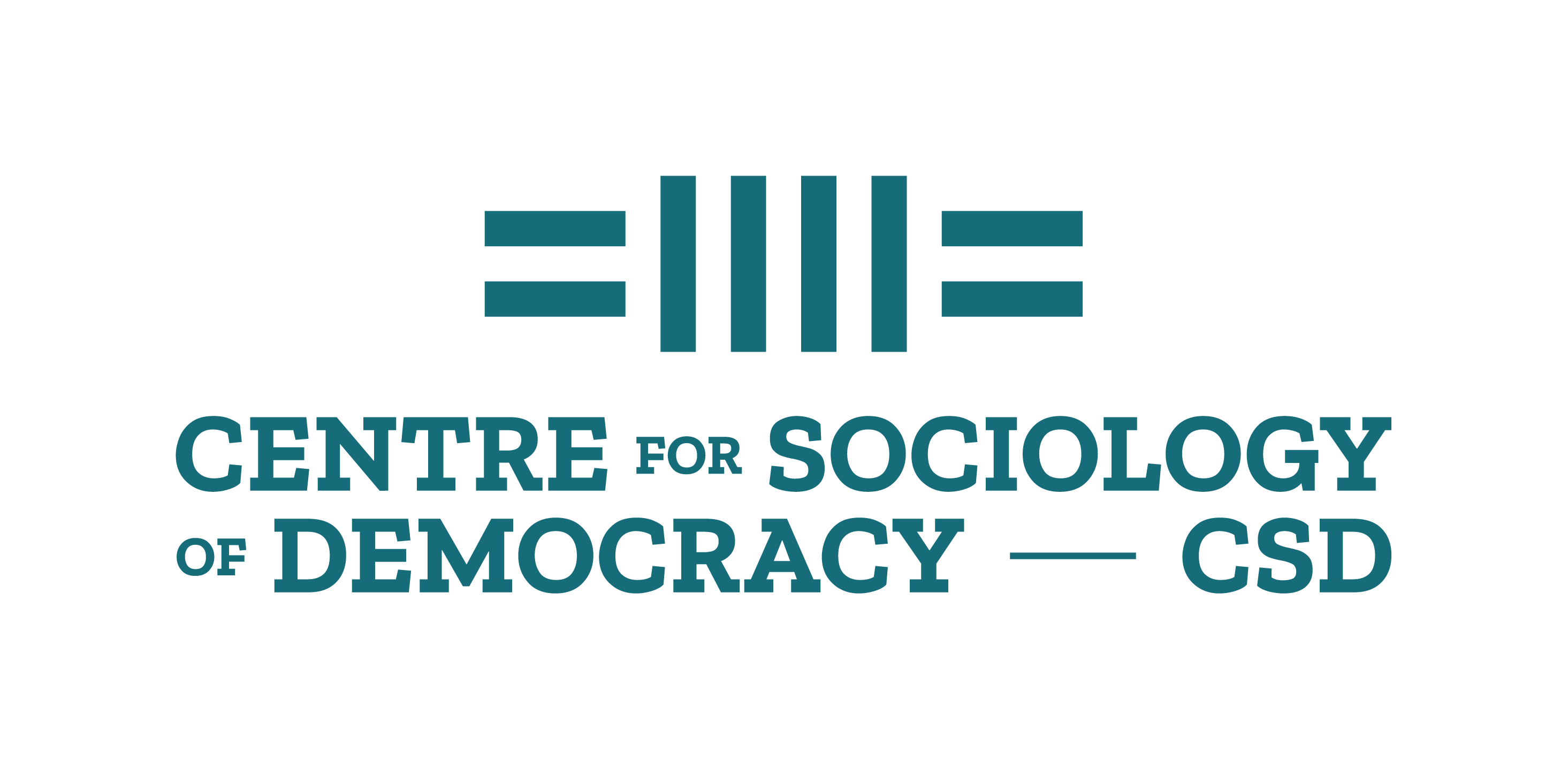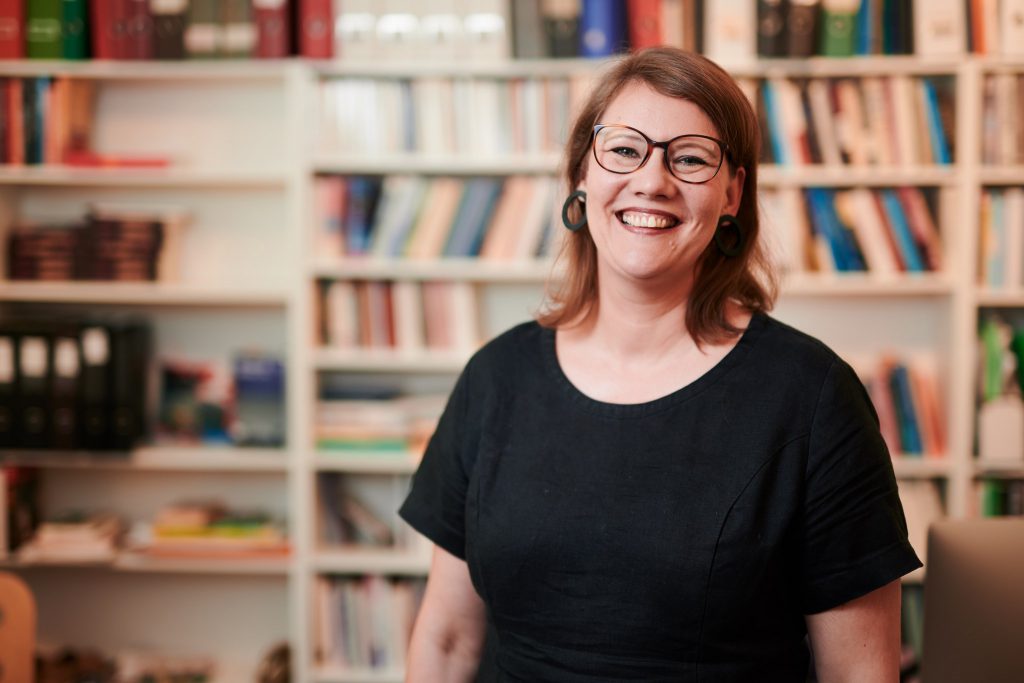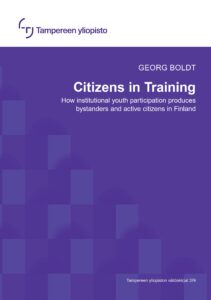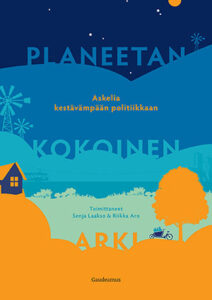
The Centre for Sociology of Democracy studies democracy in modern societies. Our projects deal with democracy from different perspectives and with different methods.
»
Recent News & Blog Posts
Activists participating in the environmental movement Elokapina see the sharing of images and videos in social media as a tool to tell people about daily protest activities, challenge the perceptions that people have of demonstrators and reach a wider audience for their message than would be possible through physical demonstrations. However, the personal nature of social media may also give rise to feelings of inadequacy and expose activists to strong negative attention.
In his dissertation Georg Boldt identified four individual level outcomes of youth participation.
Planeetan kokoinen arki auttaa ymmärtämään, miten moninaisilla tavoilla jokapäiväinen elämä, sitä määrittävä politiikka sekä taustalla vaikuttavat ajattelutavat kytkeytyvät ympäristökriiseihin.
In their article, Carla Malafaia and Taina Meriluoto explore how young activists in Portugal and Finland negotiate the value of social media in their practices.
The war in Ukraine and its refugees have evoked a wave of compassion among Europeans, to an extent that has not been seen with people fleeing the war in Syria, for instance. An overview of social media content illustrating the war helps us understand how the visualisation of the war influences people’s perceptions and attitudes towards Ukrainians. By emphasising the Europeanness of Ukraine, the threat posed by Russia and the clear moral set-up of the war, the images bring Ukrainian fates closer and make them grievable.
In his article, Georg Boldt examines the genealogy of democratic participation.
In their article, Georg Boldt and Veikko Eranti look at a particular channel for youth participation and democracy education,
meant to provide avenue for young people to present their ideas for the development of their
surrounding society.
In their article, Tuukka Ylä-Anttila, Veikko Eranti and Anna Kukkonen examine media debates on climate change in India and the United States.
A mixed-methods study by Tuukka Ylä-Anttila, Veikko Eranti and Sam Hardwick investigates politics on Overboard, a Finnish imageboard.
In his article, Tuukka Ylä-Anttila assesses the significance of social media for the Finns Party and the related anti-immigration movement from 2007 to the present day, in light of theories on the relationship of populism and social media.
Falling Walls Science Breakthrough of the Year 2022 award to Eeva Luhtakallio and ImagiDem
What are the next walls to fall in science and society? Led by this question, the brightest minds from the international scientific community submitted their groundbreaking projects for the prestigious Falling Walls Science Breakthrough of the Year 2022.

Eeva Luhtakallio, Professor of Sociology at the University of Helsinki, was awarded one of the Falling Walls Global Call Winners 2022 in the Social Science and humanities category. Luhtakallio leads the Centre for Sociology of Democracy as well as the ERC funded project ”Imagi(ni)ng Democracy: Young Europeans becoming citizens by visual participation”. The Falling Walls Science Breakthrough of the Year 2022 in Social Sciences and Humanities was selected by a distinguished Jury chaired by Björn Wittrock.
ImagiDem – Imagi(ni)ng Democracy: European youth becoming citizens by visual participation
The public sphere today is increasingly dominated by visual content. The visual dimension of political participation is the key to understanding current youth’s political action: on social media and offline in their action groups they build arguments, mobilize, and politicize through and by repertoires of visual participation. ImagiDem analyzes and conceptualizes visual participation of young Europeans to formulate an updated understanding of the public sphere and democratic practices. ImagiDem uses a radical methodological strategy: it merges ethnography with AI and supervised learning based computational tools, using the outcome to compare multiple field sites and visual big data from Finland, France, Germany and Portugal. The data is produced and processed through unique cocreation and cooperative analysis by researchers from the respective fields. ImagiDem’s theoretical ambition lies in introducing visual participation to pragmatic sociological understanding of building the common.
Read more:
“Discover this year’s Falling Walls Winners”: https://falling-walls.com/science-summit/science-summit-winners-2022/








